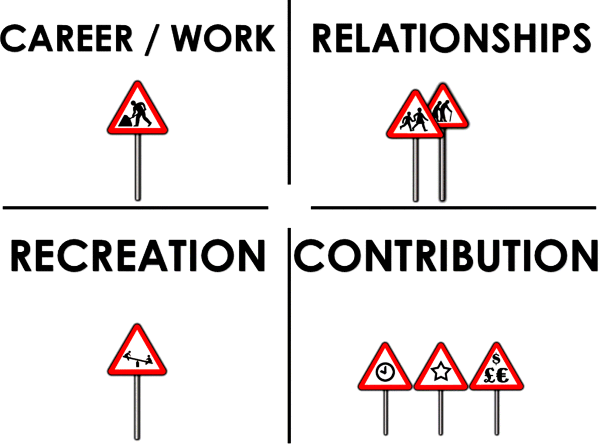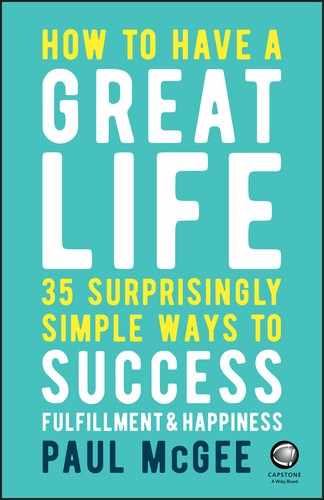Chapter 21
How to Avoid Burnout and a Break-up
24 December 1997. Christmas Eve, and my two young children had finally been persuaded to go to bed with the threat that Father Christmas wouldn't visit if they were still awake – or even worse, I would start singing to them.
Whilst I struggled to light the fire in our living room, my wife microwaved our Chinese ready meals and dug out the chopsticks. We always go to a lot of trouble for our romantic meals by the fire.
With the kids tucked up in bed and the fire roaring (I had to rely on fire lighters rather than skill), we settled down to the finest ready meal the Co-op had to offer. We had even splashed out on a portion of prawn crackers and seaweed – it was Christmas after all.
Helen and I seemed to have had less time together since the kids were born, so I relished the opportunity for food, wine, and conversation.
It had been a busy year, business had been good and included lots of travel. Apart from working in Asia I had also had the opportunity to fulfil a lifetime ambition and visit a friend in Australia.
I waxed lyrical as I reminisced about the amazing year we'd had.
Helen, on the other hand, seemed strangely quiet.
Then she finally broke her silence.
‘I don't think it's been a good year at all Paul. As a family we rarely see you, and when you are around you always seem stressed. We've had a few days’ family holiday on the Isle of Wight, but you never once seemed to relax when we were there.
I'm glad business is good and that you enjoyed your foreign travels – on your own – but I think next year needs to be very different for us as a family. As far as I'm concerned you seem to have forgotten us and become obsessed with work.’
Her words carried more of a kick than the hot chili beef I was eating.
I could see that my wife of 10 years was clearly upset. We both quickly lost interest in what we were eating and focused instead on some straight talking.
There was a long conversation that night.
A few home truths were spoken, and over the coming weeks I did a lot of soul searching about my priorities in life. I recognized that I did seem to be living in a state of constant stress, and I knew I was far from excelling as a husband or as a father.
Things needed to change.
But how?
Work/life balance seemed both unrealistic and unattainable. I was trying to get a business established and my work involved travelling away from home a significant amount. I loved my work, I felt I was good at it, and after three years on invalidity benefit (I had been ill with M.E., also known as chronic fatigue syndrome) it felt immensely satisfying to be bringing in a reasonable income.
It was time to talk to my closest friend and mentor, Paul.
After a lot of listening to my situation, Paul's first advice to me was to think about the term ‘blend’ rather than balance in relation to my life. He suggested that trying to balance all aspects of your life was an unhelpful way to view things.
But blend was different.
Paul elaborated further.
A smoothie or a juice is made up of different ingredients blended together – and here's the key point: each ingredient is important, but you don't necessarily have equal amounts of each in the drink.
Paul said it's the same with life.
Each aspect of your life is important, but you don't necessarily spend equal amounts of time on each of them. However, life, just like the drink, doesn't taste so good without all of the ingredients.
He helped me to develop the simple model below to help me enjoy a more blended life.
Together we identified four key areas that I always needed to be mindful of if I was to avoid the sort of predicament I'd found myself in that Christmas Eve.
Over 20 years later, I'm convinced they're crucial for everyone. They were as shown in Figure 21.1.

The model seemed so simple but made so much sense.
It brought me a sense of both clarity and control.
Up until that point I had been focusing purely on my career and finances. I wasn't wrong to focus on them, but I was ignoring the other three areas. Paul encouraged me to prioritize time in building my relationship with Helen and my kids, Matt and Ruth.
This meant planning time to be together, making sure I spoke to them every day when I was away, and realizing how crucial it was to be more conscious of what we did together, rather than give them the dregs of my energy when work was over.
His challenge was that it was great to look for new ways to promote my business, but how about applying the same kind of thinking to my relationships and be more proactive in seeking ways to improve them?
It wasn't about trying to spend as much time with my family as I did at work – that wasn't realistic. It was more about what we did when we were together.
The same applied to my recreation time. What was I doing to recharge and reenergize myself?
Paul's mantra was simple:
Don't leave it to chance, make it a choice.
That meant taking a more holistic view of my health – not just to focus on my physical health (weight and general fitness) but also my mental, spiritual, and emotional health. He encouraged me to take more walks, to read books for pleasure rather than ones simply related to work, and to take more time to reflect.
Finally, he emphasized the importance of not only thinking about my own needs, but also focusing on supporting others – a term he labelled contribution.
I was encouraged to see these not as four separate and distinct areas of my life, but four dimensions that interconnected with each other and helped me to live a more blended life.
That meant that going for long walks with my wife was investing in both my recreation and my relationships. The same was true when going to the football with Matt, or when I had a special dad and daughter weekend in London with Ruth.
Likewise, my work was also contributing to the welfare of others – but I could also use some of my company's profits to make a financial gift to some charities and charge a charity rate for my public seminars.
Here's the deal:
I had genuinely convinced myself that 1997 was a great year. Well, if my definition of ‘great’ was solely about work and some time for me, then indeed it had been.
But the sacrifice I was making for this so-called success was burnout and a potential broken relationship with those closest to me.
What about you? Which areas of your life do you need to give more attention to? You might want to pause and reflect on that for a moment before reading on. Perhaps even write some thoughts down.
I'm not going to suggest that, since Paul helped me develop the life blend model, life has been plain sailing and without its struggles.
It hasn't.
But it has provided a clear and simple picture of my life and helped me identify the different dimensions I need to be aware of, and how they interplay with each other.
It's removed my blinkers and helped me appreciate the larger story.
The reality is that life will rarely be balanced – but it can be well blended.
So now the ball is in your court.
Recognize the importance of all aspects of your life; not only could it help you avoid burnout and break-ups, but success won't leave you with a bitter taste either.
We never did eat the prawn crackers or seaweed that Christmas Eve. But over 20 years on from that night, my wife Helen and I are still together.
That's the power of blend.
And a wise mentor.
